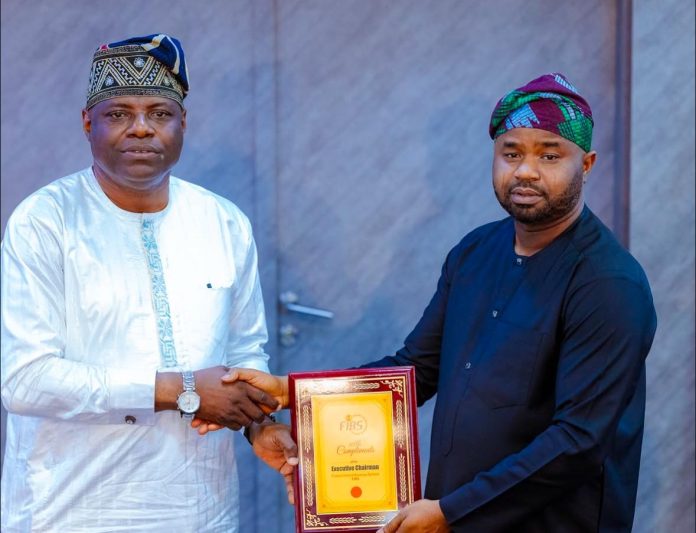The Revenue Mobilisation Allocation and Fiscal Commission (RMAFC) has hailed the Federal Inland Revenue Service (FIRS) as the backbone of Nigeria’s fiscal stability, crediting the tax agency for sustaining the financial health of the federal, state, and local governments.
Speaking during the inauguration of a joint FIRS-RMAFC Technical Committee at the FIRS headquarters in Abuja, Bimbo Kolade, RMAFC member and Chairman of its Inland Revenue Monitoring Committee (IRMC), described FIRS as a “cash cow” whose performance has kept the wheels of government turning.
“Thanks to the steady and substantial tax revenue collected by FIRS, governments across all tiers can plan, project, and execute programmes,” Kolade said, citing that in 2024, tax revenues collected by FIRS accounted for about 65 percent of all funds shared among the three tiers of government—outstripping crude oil earnings.
He lauded the leadership of FIRS Chairman, Dr. Zacch Adedeji, for steering the agency through critical reforms since assuming office in September 2023, including the passage of the Tax Reform Bills.
“If not for the incredible work Dr. Adedeji has been doing, Nigerians would have been in deeper distress, especially given the economic challenges we’ve faced recently,” Kolade said. He also commended the resolution of past misunderstandings between RMAFC and FIRS over issues like VAT allocation.
Kolade explained that the IRMC is tasked with monitoring all tax-related revenues, including Value Added Tax (VAT) and Companies Income Tax (CIT), to ensure proper remittance into the Federation Account.
In his remarks, Dr. Adedeji said the collaboration between FIRS and RMAFC is crucial to Nigeria’s fiscal architecture, with both agencies playing complementary roles—FIRS as the collector of non-oil revenues and RMAFC as the monitor and allocator.
“Our partnership is built on professionalism and mutual respect. While we generate revenue, RMAFC ensures transparency and fairness in its allocation,” he said.
Adedeji stressed the importance of deepening the partnership, especially as Nigeria intensifies efforts to diversify revenue sources and reduce dependence on oil. He called for a structured framework to institutionalise the collaboration between the agencies.
This, he said, should include regular strategy meetings, joint research, data integration, and clearly defined roles to avoid duplication and communication breakdowns.
“Through data sharing and joint monitoring, we have improved revenue accountability. Now we must take it further by embedding our cooperation in systems that ensure greater efficiency and innovation,” he concluded.














